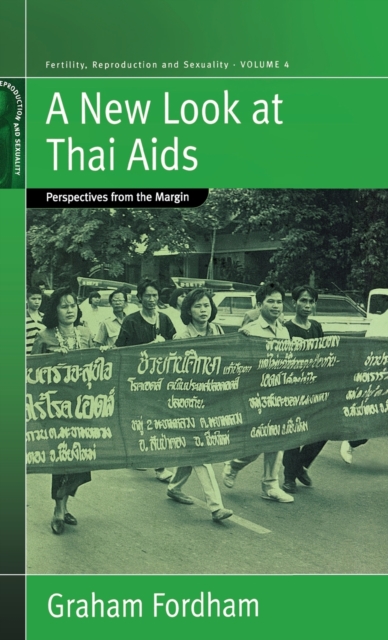
A New Look At Thai Aids : Perspectives from the Margin Hardback
by Graham Fordham
Part of the Fertility, Reproduction and Sexuality: Social and Cultural Perspectives series
Hardback
Description
Following the detection of the first HIV infections in the early 1980s, by the 1990s Thailand was routinely depicted as having the world’s fastest moving HIV/AIDS epidemic.
However, by the early 2000’s the bulk of scholarly and medical AIDS literature portrayed the epidemic as being largely under control, and claimed that Thai AIDS prevention efforts during the 1990s had been successful.
Based on long-term ethnographic research conducted in Northern Thailand this book makes an in-depth study of the social construction of Thailand’s HIV/AIDS epidemic over this period.
In addition to his own field research the author draws on an extensive corpus of English and Thai language social science and medical HIV/AIDS literature to examine the modeling of Thailand’s AIDS epidemic, and addresses concepts and issues such as risk groups, risk behaviour, alcohol use, gender and class, masculinity, the scapegoating of female prostitutes and men in the underclass, the reporting of the HIV/AIDS epidemic in Thailand’s indigenous Thai language media, and sexual activity amongst Thai youth.
The analysis demonstrates the contribution of anthropology as an interpretative social science, and the use of anthropological theory and research methods, to finding alternative ways of framing the problems of Thai AIDS and of posing new questions that will lead to more effective points of intervention.
It emphasises the necessity for critically reflexive approaches that question the ‘taken for granted’ and demonstrates how qualitative research techniques guided by social theory have the potential to take account of local meanings in complex social contexts where traditional values and cultural practices are rapidly transforming due to economic and social change.
The book offers a sustained and powerful criticism of the limitations of the normative model of the Thai AIDS epidemic and, in its aim of promoting critically reflexive AIDS research techniques in order to produce a better understanding of issues ‘on the ground’ and hence better health policy and more effective AIDS interventions, speaks not only to the Thai AIDS epidemic but to AIDS epidemics throughout Southeast Asia and elsewhere. This is the only English language study of Thailand’s HIV/AIDS epidemic to draw on long-term qualitative research in Northern Thailand as well as on a broad range of Thai (and some Khmer language) materials.
Its contextualised and subtly nuanced analysis of the AIDS epidemic and of the impact of AIDS control initiatives, in concert with the theoretical and methodological contributions it makes to AIDS research and policy and behavioural interventions, makes it a timely publication of vital interest to scholars in the social sciences, as well as to the members of non-governmental organisations and international organisations working in the HIV/AIDS, health and development fields.
Information
-
Only a few left - usually despatched within 24 hours
- Format:Hardback
- Pages:338 pages
- Publisher:Berghahn Books, Incorporated
- Publication Date:01/12/2004
- Category:
- ISBN:9781571815194
Other Formats
- PDF from £25.46
- Paperback / softback from £23.85
Information
-
Only a few left - usually despatched within 24 hours
- Format:Hardback
- Pages:338 pages
- Publisher:Berghahn Books, Incorporated
- Publication Date:01/12/2004
- Category:
- ISBN:9781571815194






